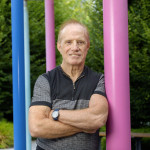In response to derogatory statements by rapper Jonathan “DaBaby” Kirk, representatives from the Black AIDS Institute, Gilead Sciences COMPASS Initiative Coordinating Centers, GLAAD, NMAC (National Minority AIDS Council), The Normal Anomaly Initiative, Positive Women’s Network–USA, Prevention Access Campaign (U=U), the Southern AIDS Coalition and the Transinclusive Group as well as a faith and HIV adviser wrote an open letter to the artist seeking a meeting. The meeting took place in August. The groups discussed HIV history and education as well as their work in Black, LGBTQ and faith communities.
From the joint statement:
The open letter to DaBaby was our way to extend him the same grace each of us would hope for. Our goal was to “call him in instead of calling him out.” We believed that if he connected with Black leaders living with HIV that a space for community building and healing could be created. We are encouraged he swiftly answered our call and joined us in a meaningful dialogue and a thoughtful, educational meeting.
During our meeting, DaBaby was genuinely engaged, apologized for the inaccurate and hurtful comments he made about people living with HIV and received our personal stories and the truth about HIV and its impact on Black and LGBTQ communities with deep respect. We appreciate that he openly and eagerly participated in this forum of Black people living with HIV, which provided him an opportunity to learn and to receive accurate information.
As community leaders who understand the power of conversations as a path to education and evolution, we know that DaBaby received meaningful facts. We were also able to share personal stories about our lives as everyday people who acquired HIV. Now, we wish for him to use his platform to relay that critical information to his fan base and encourage people to get tested and know their status.
During our meeting, DaBaby acknowledged that the HIV facts we presented—many of which he himself was unaware of—are what every American needs to know: HIV is preventable and when treated properly, cannot be passed on. At a time when HIV continues to disproportionately impact Black communities, celebrities and influencers of all backgrounds have the power to defeat the stigma that fuels the epidemic. We must all do our part to make the public aware of medication that can prevent HIV and to get more people tested and treated. Together we can end this epidemic. Forty years is far too long. Stigma hurts; prevention, testing and treatment work.
Quotes from community leaders:
“Ending HIV stigma requires doing the hard work of changing hearts and minds, and often that begins with something as simple as starting a dialogue,” said Marnina Miller of the Southern AIDS Coalition. “We hope DaBaby will use his platform to educate his fans and help end the epidemic.”
“We have to think critically and intentionally about how we truly equip and engage everyday Americans with the facts, resources and scientific advancements about HIV if we want to end the epidemic,” said DaShawn Usher of GLAAD. “We must hold the media accountable to the 1.2 million Americans living with HIV.”
“Our goal is to make sure that Black people are armed with accurate information,” said the Reverend Rob Newells-Newton of the Black AIDS Institute. “We call on Black people and our allies to dismantle anti-Black racism, invest in transforming the socioeconomic conditions of Black people, ensure universal access to culturally affirming health care and build the capacity and motivation of Black communities to be the change agents for ending HIV.”







Comments
Comments